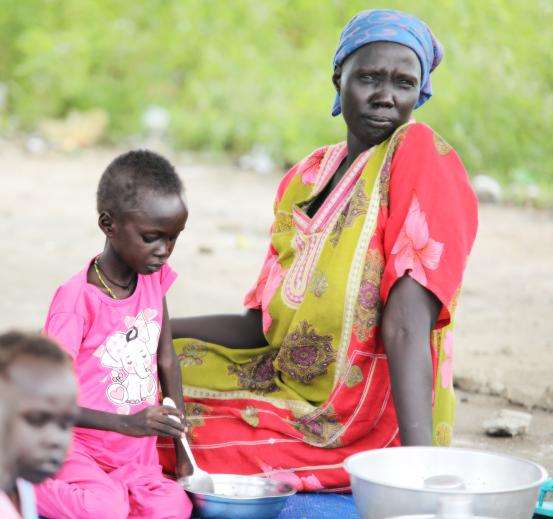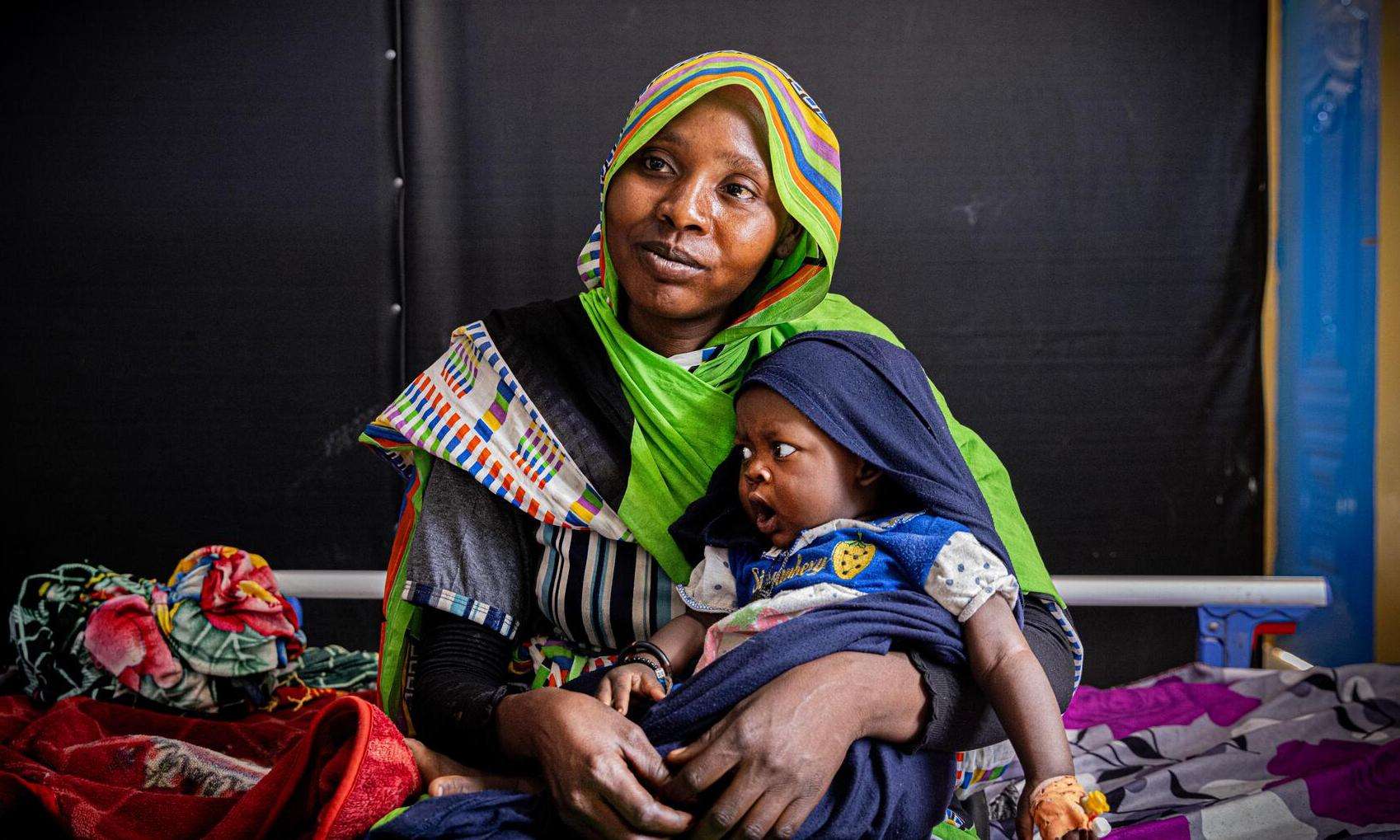For a year, the war between the Sudanese Armed Forces (SAF) and the paramilitary group Rapid Support Forces (RSF) has ravaged Sudan, forcing millions of people from their homes and leaving countless civilians dead or severely injured. Airstrikes, drones, and heavy weapons like tanks have destroyed markets, residential neighborhoods, and critical infrastructure, including health facilities.
Doctors Without Borders/Médecins Sans Frontières (MSF) teams have been working across 11 of Sudan’s states, performing surgical procedures, assisting women in birth, and treating children in pediatric wards and inpatient therapeutic feeding centers. We are also working in refugee camps and other places hosting displaced people, improving water and sanitation conditions, carrying out mobile clinics, and vaccinating children.
The majority of our staff come from the communities they serve. Here, our staff and patients share stories about what they’ve experienced over the past year.
MSF doctor
Dr. Ahmed Omar Al Jak
"In the early days, we watched the news unfold, seeing streams of displaced people making their way from Khartoum to Wad Madani. We set up field clinics in camps, offering whatever medical aid we could. But as we witnessed the exhaustion etched into the faces of the displaced, we realized their needs extended beyond physical treatment. They needed psychological support, too.
For seven months, we worked tirelessly in these camps, treating malnutrition, measles, cholera, and other prevalent diseases, and providing mental health consultations. We became a lifeline for people until the conflict escalated, forcing us out of the camps...
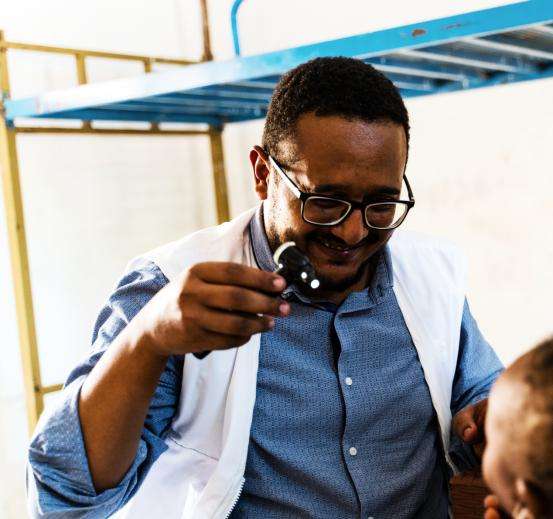
Displaced person in Sudan
Khadija Mohammad
"I’m Khadija Mohammad and this is my daughter Malaka, I have been displaced by the war in Sudan. Five months ago, I was forced to flee my home in the displacement camp of Hasahissa in Zalingei and sought refuge in [another] displacement camp, Tululu.
When the problems started between SAF and RSF, I lived at the edge of the [Hasahissa] camp which is close to a military base. The militia would come into our homes and loot our belongings.
During the fighting, there was no access to health care or food in the camp. I sold my belongings to earn some money for food. Eventually, the security situation became too difficult, and I was forced to move to Tululu camp, one hour away...
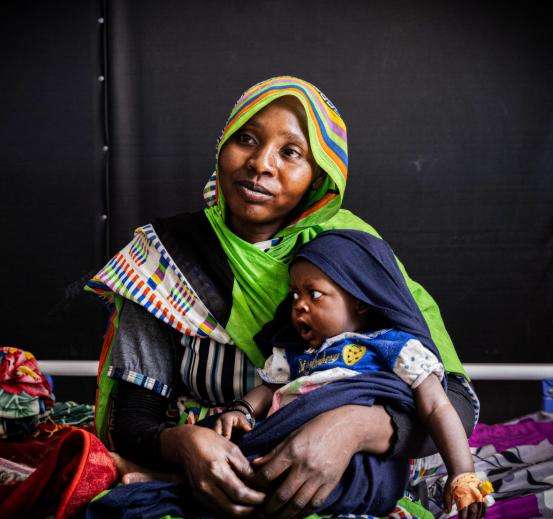
MSF nurse supervisor
Alaa Ahmed
"Our team has provided lifesaving activities in the pediatric and maternity wards, the delivery room, and family planning initiatives. Since July 2023, we've reached out with healing to thousands of patients, offering inpatient and outpatient consultations and assisting women through childbirth. This experience has strengthened my commitment to humanity.
Before the war's shadow fell over us, I worked in another MSF project providing support to Omdurman hospital and its surrounding areas, offering medical assistance wherever it was needed. The war forced my family and me to [flee] to Al Gedaref, from where I later joined the MSF team in the Umdawanban project, and now I’m in Port Sudan supporting our mobile clinic activities and coordinating nursing activities for other projects in the country...
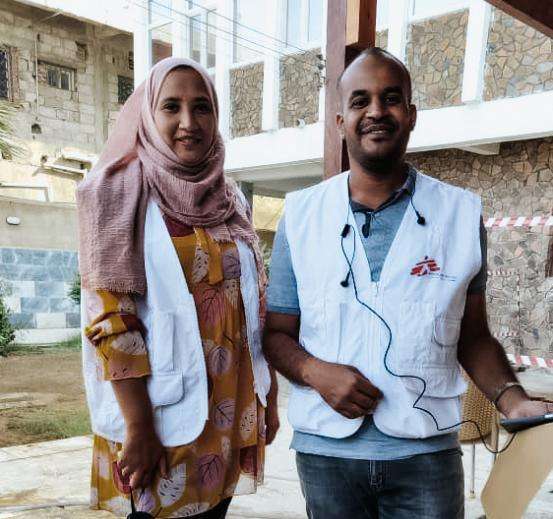
Refugee in Chad
Khartouma
"When armed clashes and bombings came close to my village, I had no other choice than to leave. We fled with a group of people but some of them did not make it to the border. With my neighbors, we fled by car and took as much luggage as possible. But along the way, there have been attacks, people have been killed. We were looted by armed men but we were lucky—they took only our belongings and not our lives.
We arrived late at night and empty-handed at the border. The next day, we went to the Adré transit refugee site where I met my aunt. She shared with us what little she had: a tarpaulin, a few pieces of wood, and three kilos [about six pounds] of flour so at least we could build a shady spot, sleep, and eat. In the past four months, I benefited from two distributions only, with different bags of cereals, flour, oil, and more. But it is not enough to cover our needs...
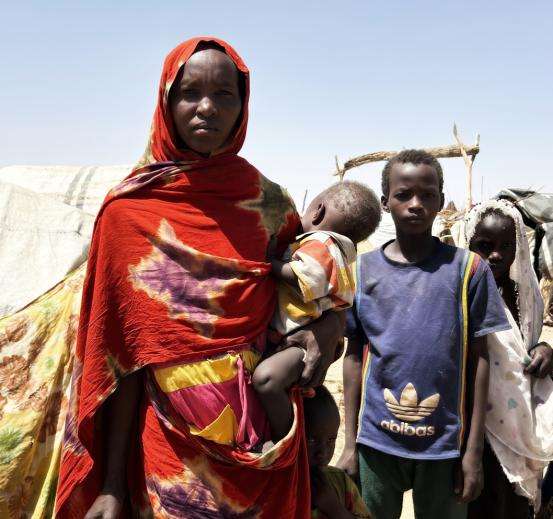
Refugee in South Sudan
Chira Casah
"Leaving Khartoum was a harrowing journey marked by desperation for medical aid for my thyroid disorder, which causes fever, dizziness, hormonal imbalances, poor sleep, and weight loss when untreated. Fleeing with my mother, brother, and sister, we lost contact with my father and two other brothers in the chaos of war. I hope they are still alive.
Life in the camp is a stark contrast to our comfortable existence in Khartoum. Illness plagues my family, necessitating frequent visits to the MSF clinic for assistance. Food and water shortages loom large, forcing us to scavenge for work to survive. You will just die from hunger if you don’t go out and try everything you can to work and get a little money...
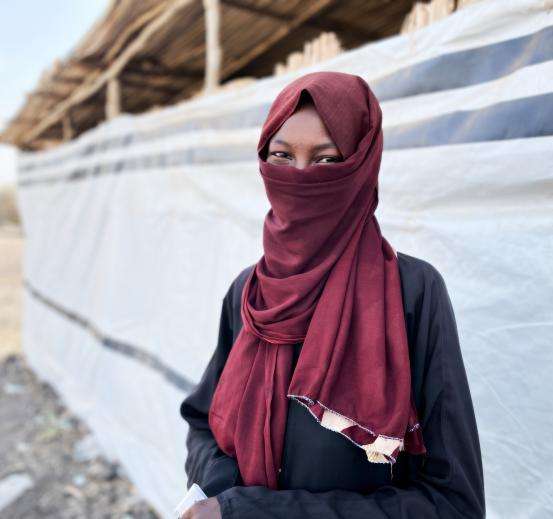
Returnee in South Sudan
William Jokite
"I was working in Khartoum when the war broke out in April 2023. The warehouse where I was standing was bombed and 15 out of 20 people were killed in the attack. After we thought it calmed down we crawled out. One of my colleagues tried to stand up and run but we saw him being shot in the neck, he died instantly. With a car we found, I drove until it ran out of fuel, and then we continued on foot. However, a previous injury sustained when I bathing in the river slowed me down, and my friends left me behind to travel faster.
Alone and in pain, I walked for three days and nights without rest, worsening my injured foot. I fear for [the] future, but I must press on to reunite with my family in Maban, recalling the nights I wake up to memories of my siblings playing in the yard. I just wanted to be with them again...
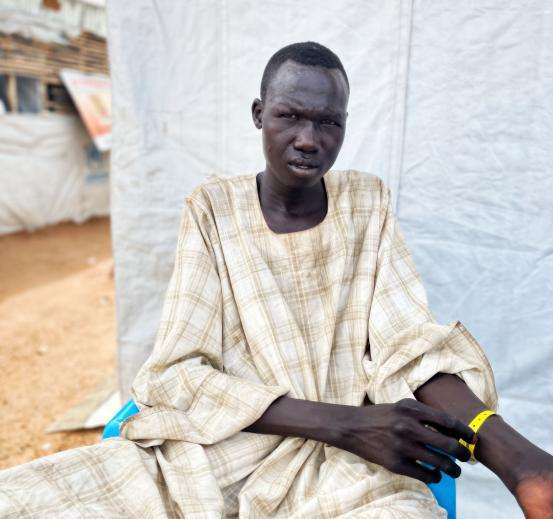
Refugee in Abyei Special Administrative Area, a region claimed by both South Sudan and Sudan
Mohammad Abakar
"I was in Darfur and had to flee in 2003. My journey took me to Nyala, and now, [after] escaping from there, I've arrived here [in South Sudan].
Families trapped in perilous areas are desperate to reach this safe haven, [but] the journey here is fraught with challenges. It's costly and perilous, [with] frequent attacks and rampant looting. The attackers leave nothing behind. We urgently need both transportation and protection. The current circumstances are horrific beyond words...
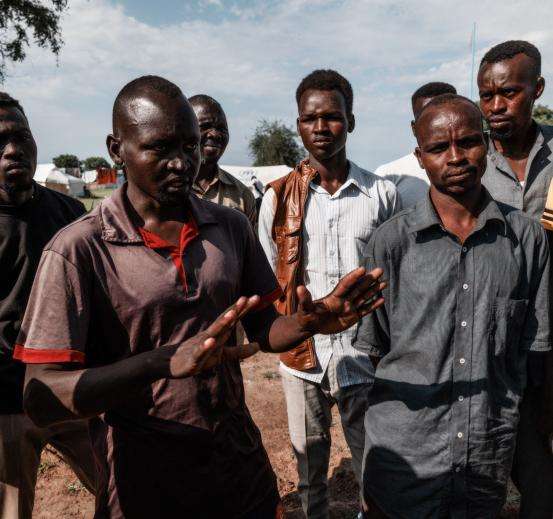
MSF health promoter and refugee in Chad
Sijood
"I saw with my eyes really bad things, it was really dangerous. They killed people without hesitation. If they hid with children, they would kill the children. I saw this with my eyes.
We lost everything, we lost our people, our brothers, our sisters, we lost our money, we lost our house, we lost our country too. It’s very hard to say ... but we must talk about this.
I am a refugee. I live a difficult life, but now by the will of God, I will keep going."
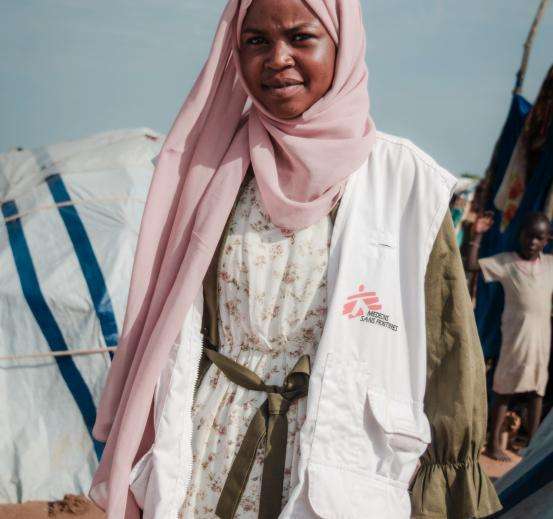
Displaced person in South Sudan
Hamad Mohamod
"The rebels were looting the houses and taking everything they could find. If they didn't find money, they killed people in their homes. That is why I fled with my family."
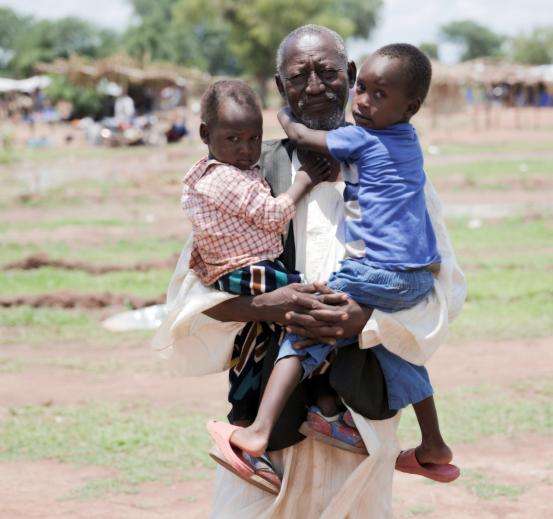
MSF health promoter in Sudan
Mohamed Alaa Aldeen
"This isn't my first stop on the displacement route. I fled from Khartoum to Wad Madani, and now I find myself once again displaced in Port Sudan.
Traveling across Sudan and meeting new faces always filled me with joy, yet this displacement from one location to another is just a nightmare...
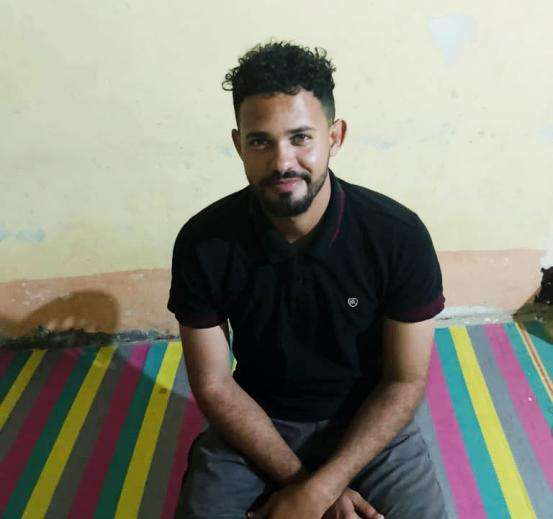
Returnee in South Sudan
Marta Kaliba
"When we arrived in Alagaya camp in Sudan, the children started to fall sick. They had measles. The baby was the first to get a fever and after one week, the three-year-old and later the nine-year-old. They died.
I had to bury my three children far from home. Far from anyone they knew. Far from where we were going.
As I continued my journey to South Sudan, I arrived at Renk, where I discovered that my eight-year-old son and my five-year-old daughter were malnourished. The change in food, the long journey, and the grief have been arduous for me and my family. I have lost three children, and the other two are fighting for their lives...
